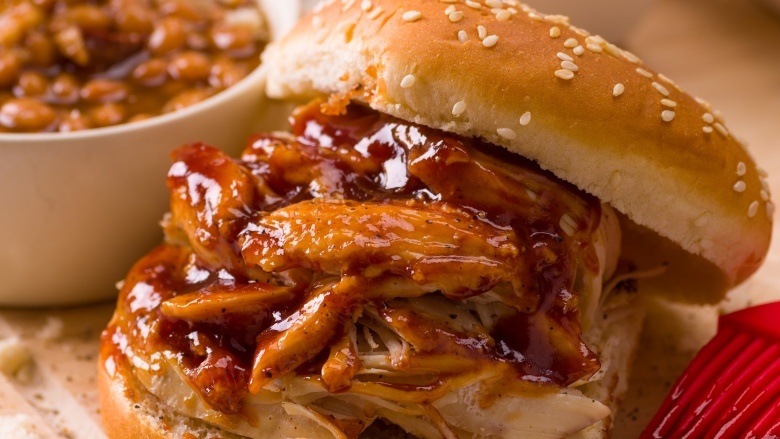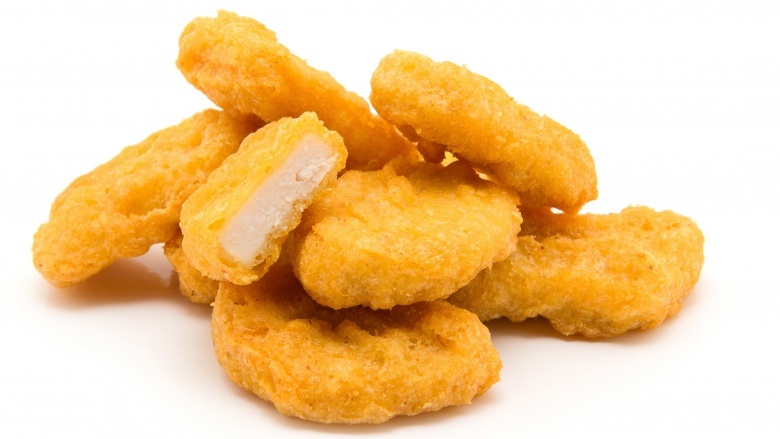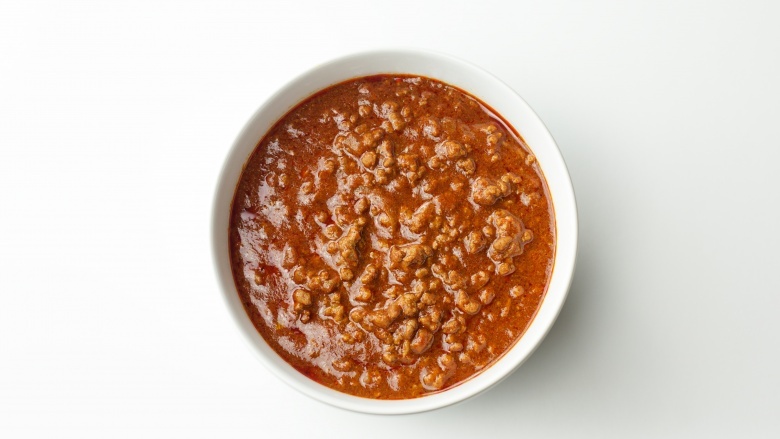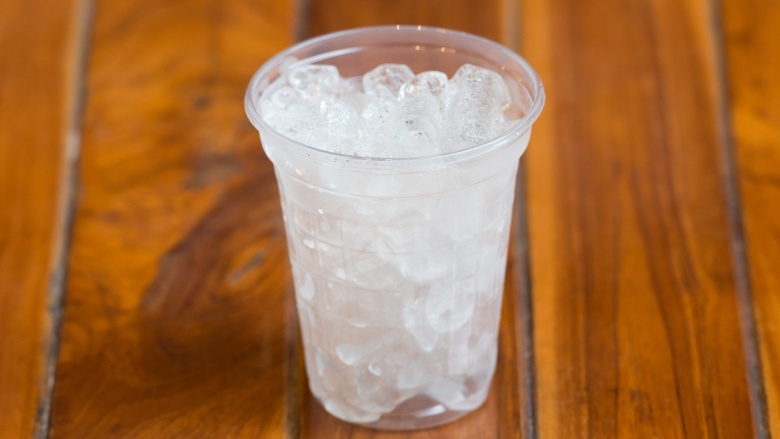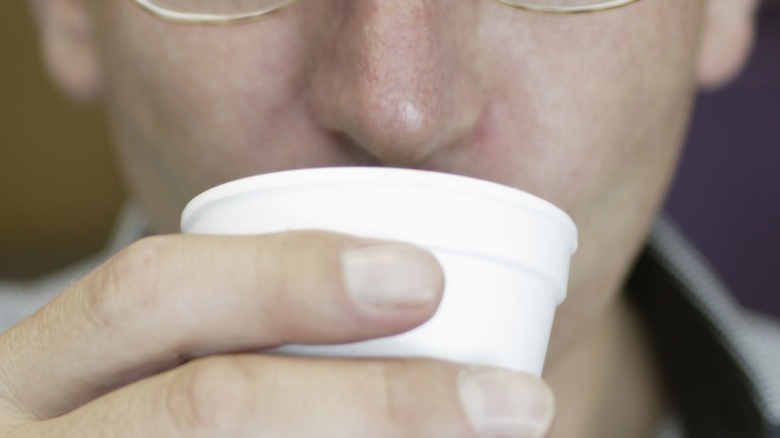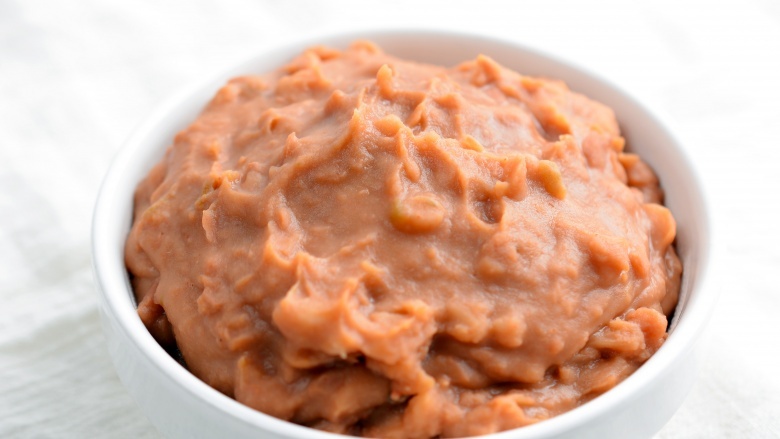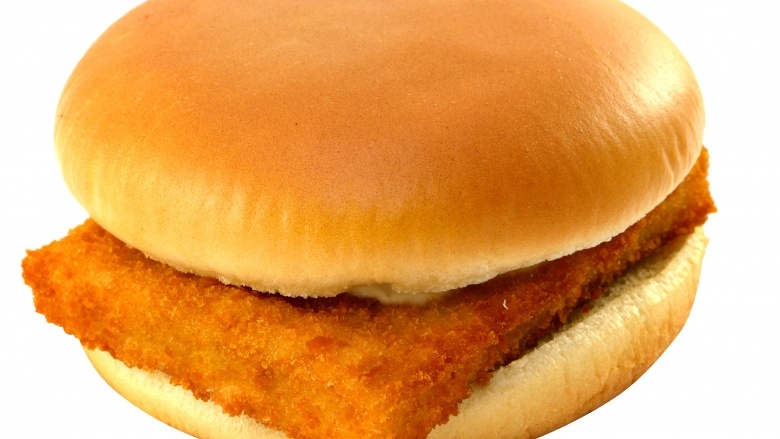What You Don't Want To Know About Fast Food
You might swear you're never doing drive-thru ever again, yet at some point, you're probably going to end up eating fast food. But you can still make good choices. We don't mean salads and grilled chicken. We're talking about avoiding certain food items that, according to the people who work inside that infamous window, are gross, unsanitary, or just plain strange.
Barbecue chicken sandwiches
The good news: many Kentucky Fried Chicken franchises across the country donate a lot of their unsold chicken to local charities and homeless shelters. The bad news: some of that chicken is too old or stale to donate to the hungry, so KFC employees supposedly strip the chicken from the bones and soak the meat in barbecue sauce for a day or so. The staleness is effectively masked with the powerful taste of tomatoes and vinegar, and it's plopped onto buns and sold as sandwiches.
McNuggets
Chicken McNuggets do have chicken in them, but it's nowhere near as plentiful as the main ingredient. There are actually 38 ingredients in these fried poultry lumps, and the majority of them are corn products and corn derivatives. A whopping 56 percent of a McNugget is technically corn. And 0.02 percent is tertiary butylhydroquinone, a petroleum byproduct used as a preservative. TBHQ is also known as butane—lighter fluid.
The chili
Similarly, Wendy's repurposes old, dried-up beef patties the way KFC appropriates old chicken. Throughout the day, meat patties that get cooked up but remain unsold are purportedly moved to a warming drawer. Once the warming drawer is full of old, overheated beef, it's collected and then used as the basis of Wendy's chili. Hot water is added occasionally in order to restore the old-meat-based chili's consistency.
Ice in your soda
Fast food soda machines see a lot of traffic, and it's already hard enough for employees to keep the ice machines full. According to a study (which was originally done as a science project started by 12-year-old Jasmine Roberts), 70 percent of the ice collected from fast food places was dirtier than the water in those same restaurants' toilets.
Drinks in styrofoam cups
Polystyrene cups have been banned in many major cities because they take thousands of years to decompose but some restaurant chains still serve drinks in them, especially for coffee and hot chocolate. When filled with hot beverages, Styrofoam cups are known to leak styrene-styrene, which is a neurotoxin linked to depression and concentration issues. Cold drinks only make a little of the stuff leak out, but when the cups are heated—as happens when they're filled with coffee—the styrene can't get out of its Styrofoam prison fast enough. Do yourself a favor and buy a thermos or a travel mug.
"Refried" beans
The beans at Taco Bell used to make burritos and the like reportedly begin life in a huge, industrial-size bag and aren't even recognizable as beans. It starts as a thick, brown goop with gross white spots throughout it. The directions say "add water and stir until you can't see white anymore," and we thought the Chipotle E. Coli scare was bad.
Fish filet sandwiches
Many burger chains, particularly McDonald's, have such a high volume of business that they pre-make sandwiches and load them up in a heater/hopper for faster service. But if a sandwich is not popular—like the fish sandwich—it can sit there for hours. Unless it's a time of year when fish sandwiches are popular (such as during Lent, when McDonald's and other restaurants put the Filet-O-Fish or similar items on sale to attract those who temporarily don't eat meat for religious reasons), you may want to avoid the fish.

